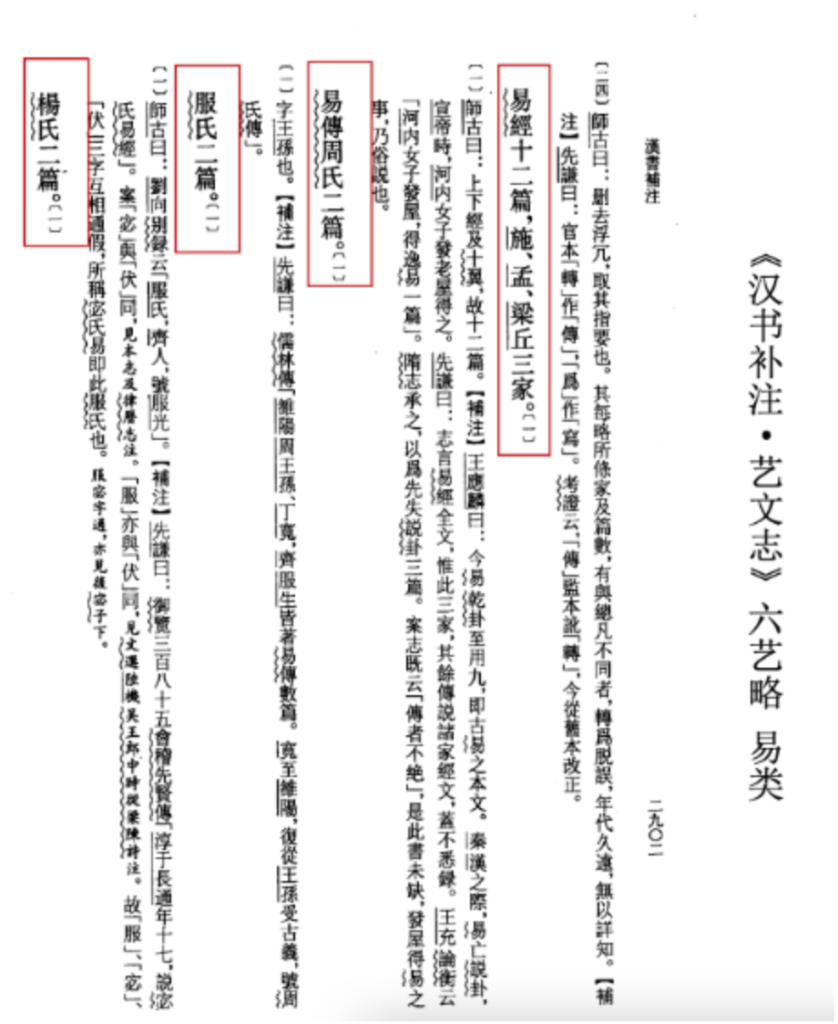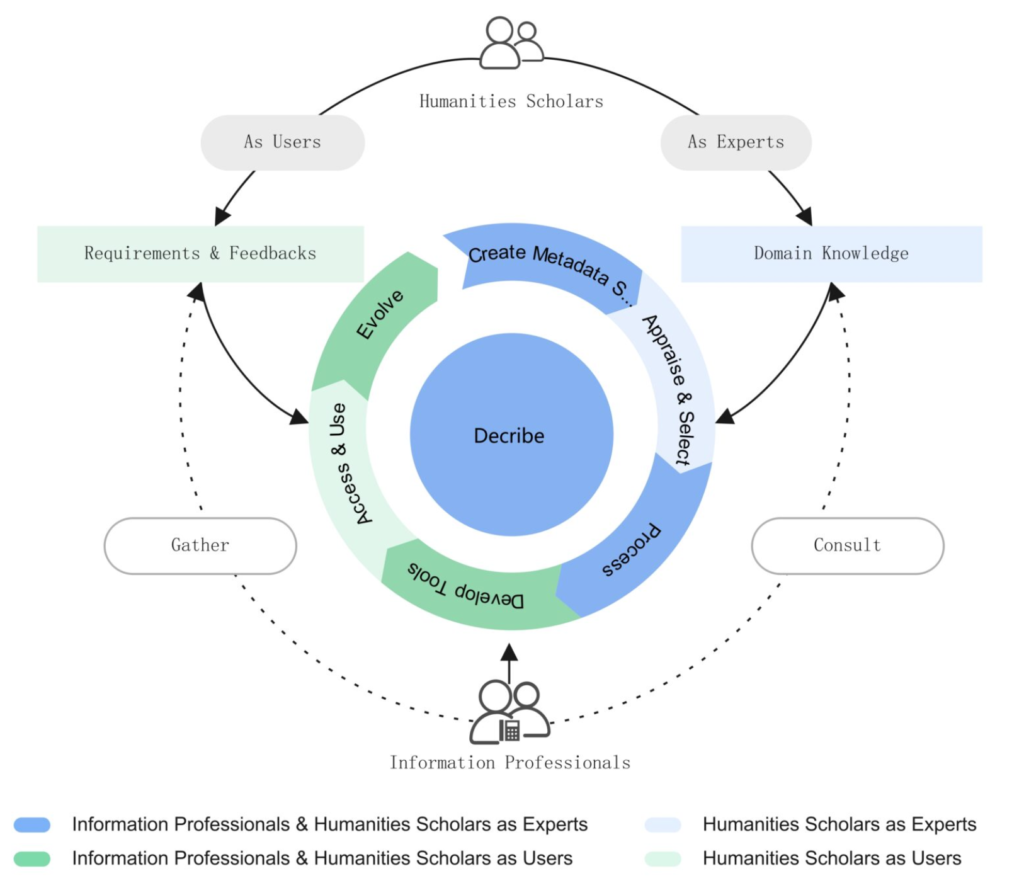Curating Chinese Ancient Book Catalogs through Interdisciplinary Collaboration
Curating Chinese Ancient Book Catalogs through Interdisciplinary Collaboration
Wenqi Li
Since the establishment of various philosophical schools in the pre-Qin era, Chinese scholars have consistently built upon past knowledge to create new intellectual works. Over the centuries, these efforts have yielded a vast sea of literature spanning classics, histories, and literary compositions. Consequently, bibliography or book catalogs has long been regarded as a critical discipline—“the entry point to scholarship.” Ancient scholars relied on catalogs to locate texts and delve into learning. Today, as we explore the world of ancient Chinese books, catalogs remain indispensable guides.

—as we explore the world of ancient Chinese books, catalogs remain indispensable guides—
China’s tradition of cataloging stretches back thousands of years, resulting in hundreds of bibliographic works that vary greatly in structure, categorization methods, and compilation purposes. This diversity often poses challenges for researchers trying to consult or compare them. A digital ancient book catalog could revolutionize this process, allowing scholars to effortlessly explore Chinese books and documents spanning over two millennia. Such a tool would amplify the role of bibliographies by enabling readers to “grasp the essence of records and analyze words” with unprecedented ease. Recent research by Peking University’s Digital Humanities Research Center and the Institute for the History of Natural Sciences at the Chinese Academy of Sciences is making this vision a reality.
Traditional Chinese catalogs document essential metadata such as book titles, author names, volumes, and historical periods. From the Sui dynasty onward, the “four-category” classification system has been predominantly used, dividing works into the four categories of “Classics” (Jing), “Histories” (Shi), “Philosophers” (Zi), and “Literature” (Ji), with additional subcategories. Although many valuable books have been lost over time, these bibliographies provide insights into the historical distribution and transmission of ancient Chinese texts, making them not only vital cultural heritage but also invaluable academic resources.
Historically, these catalogs were preserved in physical books, accessible only through manual consultation. In the digital age, however, the question arises: how can we transform these rich cultural artifacts into data resources that modern scholars can fully utilize?
Our research adopts the core principles of data curation to digitize, integrate, and unlock the scholarly potential of ancient Chinese catalogs, enhancing their value for research and innovation. Data curation involves the active and sustained management of data deemed valuable for research and education, promoting its use and reuse.
Based on existing theoretical models, the characteristics of ancient bibliographies, and insights into user needs and behaviors, we developed the “the Collaborative Curation Model for Ancient Catalogs.” This model emphasizes close cooperation between humanities scholars and information science experts. In this collaboration, humanities scholars play dual roles: they contribute domain-specific expertise and provide feedback as end-users. Information science professionals, on the other hand, handle data processing and system development. The model outlines key steps in the curation process, including metadata design, data source evaluation and selection, data processing, tool development, user access, and continuous iteration. Many of these steps, such as metadata design and data processing, require intensive collaboration between domain experts and information professionals.

Data processing is particularly challenging due to the inconsistencies in bibliographic records spanning over 2,000 years. Problems such as variant character forms, inconsistent naming conventions, missing fields, and mixed attributions are common. For example, the classic work Xunzi is referred to as Xun Qingzi or Sun Qingzi in different bibliographies. By combining humanities expertise with computational methods in an iterative human-machine approach, we can efficiently standardize and integrate vast amounts of bibliographic data. Meanwhile, humanities scholars provide user feedback during tool development and iteration, optimizing tools for data retrieval and visualization.
Guided by this model, we selected representative catalogs spanning from the Han to the Qing dynasty, including the monumental Complete Library of the Four Treasuries (Siku Quanshu Zongmu). We designed data structures, processed the records, and developed a user-friendly system for data retrieval and visual analysis (accessible at https://bib.pkudh.org). This system enables scholars to explore catalogs, uncover patterns in classification and knowledge structure evolution, and gain new insights from large datasets.
Our research delivers a standardized, integrated dataset of ancient bibliographies and analytical tools for humanities scholars. It also provides a theoretical framework and practical example for curating cultural heritage and humanities data. Through collaborative curation, the value of Chinese ancient book catalogs—and other cultural assets in the future—can be fully realized in the digital environment.
Li, W., Wang, J., & Wang, F. (2024). Curating the Chinese ancient book catalogs: Leveraging the dual roles of humanities scholars as experts and users in collaborative practice. Journal of the Association for Information Science and Technology. https://doi.org/10.1002/asi.24894
Cite this article in APA as: Li, W. Curating Chinese ancient book catalogs through interdisciplinary collaboration. (2025, January 8, 2025). Information Matters, Vol. 5, Issue 1. https://informationmatters.org/2025/01/curating-chinese-ancient-book-catalogs-through-interdisciplinary-collaboration/
Author
-
Wenqi Li is a postdoctoral researcher in the Department of Information Management at Peking University, where she earned her Ph.D. in Information Science. She also holds a Master of Science in Human-Centered Design & Engineering from the University of Washington and a Bachelor of Management in Information Management and System from Peking University. Her research focuses on data behavior, data curation, and digital humanities, with a particular interest in the data behaviors of humanities scholars and the curation processes that support the shift towards data-driven research in the humanities. Wenqi has actively contributed to digital curation projects of ancient Chinese texts. Before entering academia, she accrued four years of industry experience in user experience design.
View all posts





